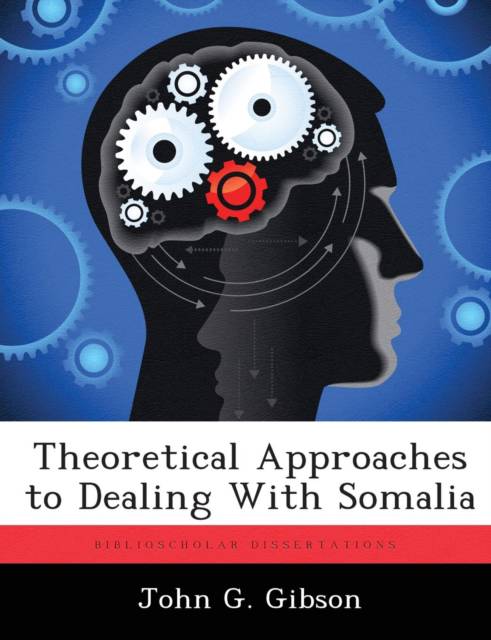
- Retrait gratuit dans votre magasin Club
- 7.000.000 titres dans notre catalogue
- Payer en toute sécurité
- Toujours un magasin près de chez vous
- Retrait gratuit dans votre magasin Club
- 7.000.0000 titres dans notre catalogue
- Payer en toute sécurité
- Toujours un magasin près de chez vous
54,45 €
+ 108 points
Description
Current conditions in Somalia create difficult challenges for the United States. To address ungoverned spaces in the failed state of Somalia, the United States appears to seek multilateral solutions to piracy in the Gulf of Aden, and displays an unwillingness to militarily intervene in Somalia. The United States currently relies on a neo-liberal strategy of limited coalition, international organization, and multilateral agreements to combat piracy of the coast of Somalia, support political development of the Transitional Federal Government of Somalia, and mitigate the effects of famine. Increasingly piracy, famine, and fragile governance plague an already unstable region. Catastrophic conditions exist for the continued exportation of failed state symptoms to Kenya and Ethiopia. US foreign policy and international actions in and around Somalia are too weak to change the current trends of failure. International actors provide critical assistance in funds and food that, no doubt, help reduce suffering. Yet, nothing seems to put an end to the reoccurring theme of crisis and instability. Seth Kaplan and Bronwyn Bruton, both experts on Somalia, agree that United States policy must change; however, they differ upon the application of new policy. Kaplan offers an intrusive and comprehensive nation building approach while Bruton recommends a policy of constructive disengagement. The purpose of this essay is to determine if US national interest intersect with the situation in Somalia enough to warrant a change in American foreign policy. Realism and liberalism provide useful tools for examining state actions in the international system. Theories and authors assist policy makers by providing tools for thought and action. Regardless of the tools, Somalia continues to prove a difficult problem. It is the hypothesis of this essay that the United States should constructively disengage from Somalia, while providing a roadmap for international recognition for Somaliland, and simul
Spécifications
Parties prenantes
- Auteur(s) :
- Editeur:
Contenu
- Nombre de pages :
- 56
- Langue:
- Anglais
Caractéristiques
- EAN:
- 9781288324101
- Date de parution :
- 21-11-12
- Format:
- Livre broché
- Format numérique:
- Trade paperback (VS)
- Dimensions :
- 189 mm x 246 mm
- Poids :
- 117 g

Les avis
Nous publions uniquement les avis qui respectent les conditions requises. Consultez nos conditions pour les avis.






